Sudan: From Political Crisis to Security Crisis

Sudan, a North African nation of 46 million people, is facing a political and humanitarian crisis since October 2021, when the military dissolved the power-sharing government and declared a state of emergency. The military coup ended a transitional period that began in 2019, after a popular uprising ousted former President Omar al-Bashir, who had ruled Sudan with an iron fist since 1989. The pro-democracy movement and the international community had hoped that Sudan would move towards a civilian-led democracy and peace after decades of autocracy, internal conflict and economic isolation. But as there was no civil society left to take the country towards democratic rule due to prolonged martial law style governance, the power vacuum left by ex-president was never filled by elected representatives of people.
It was only a matter of time before country plunges to dark ages, and it happened quickly after failure of 2019’s uprising in becoming a democratic struggle. As the last resort, country’s military intervened to keep the territorial integrity of the country by keeping it functional. But this move by security forces created an even bigger security nightmare for Sudan and country moved from political crisis to security crisis as infighting between military generals drove the country into a state of civil war where both sides are fully armed and trained.
Now 2 major factions of Sudan’s military apparatus are fighting against each other. First faction is the Sudanese army, led by General Abdel Fattah al-Burhan, and the second one is Rapid Support Forces (RSF), a paramilitary group led by General Mohamed Hamdan Dagalo, also known as Hemedti. He is also considered number 2 of Gen. Al-Burhan. Both men were part of the ruling council that took over after Bashir’s fall, but they had different visions and interests in Sudan’s future. The army wanted to maintain its dominance and influence over the political system, while the RSF wanted to expand its economic and territorial control, especially over the lucrative gold mines in Darfur and other regions.
The tension between the two sides escalated in April 2023, when a plan for a new transition with civilian participation was due to be signed under international pressure. The plan required both the army and the RSF to cede some of their power and integrate into a unified force under civilian oversight. Neither side was willing to compromise, and they accused each other of plotting to seize full control of the country. On April 15, 2023, violence erupted across Khartoum and other parts of Sudan, as the RSF attacked strategic sites such as the airport, the presidential palace and army headquarters. The army fought back, and both sides used heavy weapons and air strikes against each other.
Both sides are armed in Sudan’s growing security crisis. The RSF has an estimated 50,000-70,000 fighters, who are armed with assault rifles, rocket-propelled grenades, and pickup trucks mounted with machine guns. The RSF has been accused of committing human rights violations and atrocities against civilians in various regions of Sudan. On the other hand, Army is well-equipped with tanks and artillery guns which it is using indiscriminately causing wide-spread destruction in major areas across the capital city of Khartoum.
The fighting has resulted in hundreds of deaths and injuries, mostly among civilians caught in the crossfire. It has also disrupted basic services such as water, electricity, health care and education. Many people have fled their homes or sought refuge in neighboring countries. The international community has condemned the violence and called for an immediate ceasefire and a return to dialogue. However, with no clear resolution in sight, Sudan faces the risk of a full-scale civil war that could destabilize an already volatile region.
Due to deteriorating security situation in Sudan many countries have decided to evacuate their citizens from the African nation to ensure their safety and security. According to the latest reports, at least 15 countries have already completed or initiated the evacuation process, including the United States, the United Kingdom, France, Germany, India, China, Japan, Canada, Australia, Turkey, Egypt, Saudi Arabia, Qatar, Kenya and Ethiopia. Some of these countries have also offered to assist other nationals who wish to leave Sudan amid the political crisis and violence.

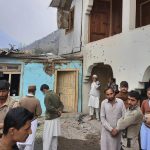
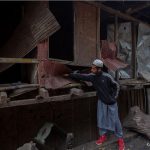
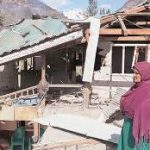
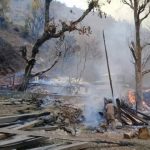
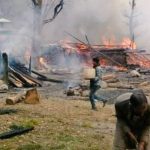

Comments